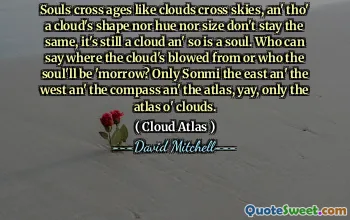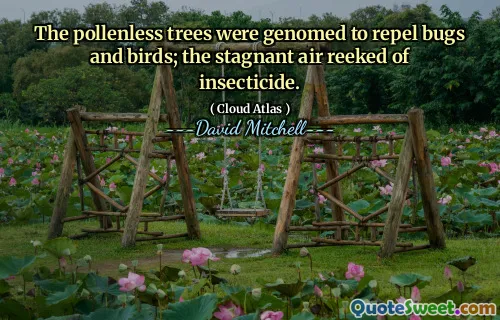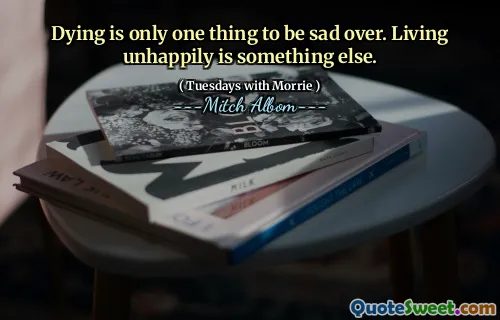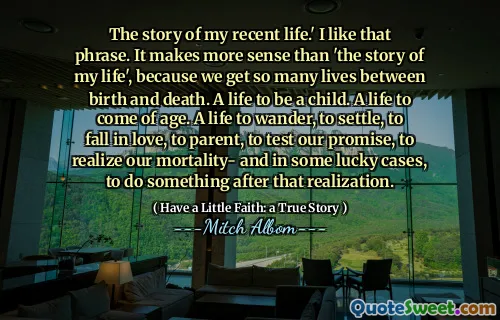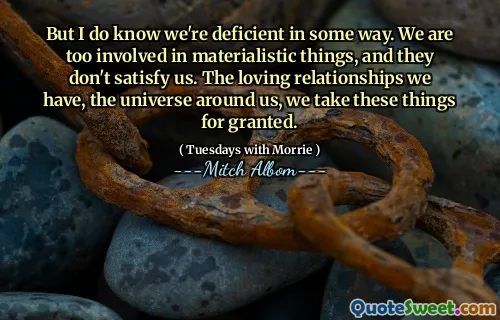I am a sacrifice bound with cords to the horns of the world's rock altar, waiting for worms. I take a deep breath, I open my eyes. Looking, I see there are worms in the horns of the altar like live maggots in amber, there are shells of worms in the rock and moths flapping at my eyes. A wind from no place rises. A sense of the real exults me; the cords loosen: I walk on my way.
The passage presents a vivid and poignant imagery of a character in a state of sacrifice, bound to an altar, alluding to feelings of entrapment and impending decay. The description of worms and moths suggests a confrontation with mortality and the ravages of time. Despite this grim scene, the character finds clarity and a sense of reality that uplifts them, as indicated by the loosening of the cords that bind them to the altar. This moment symbolizes a transition from confinement to liberation.
Annie Dillard's portrayal expertly captures the natural world's beauty intertwined with the grotesque, reflecting deeper philosophical themes of existence, renewal, and the struggle for freedom. The awakening of the character signifies hope and determination, as they take control of their path despite the unsettling surroundings. This duality between despair and enlightenment suggests that even in the darkest moments, there is the potential for growth and movement toward a new journey.
